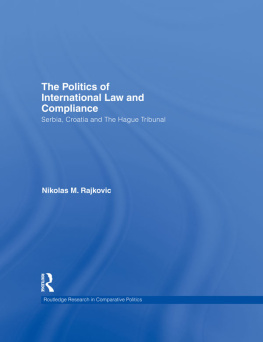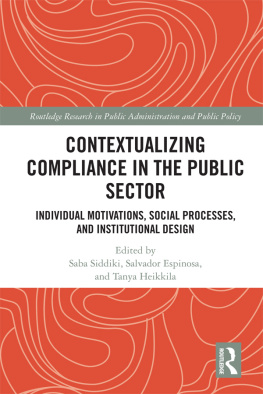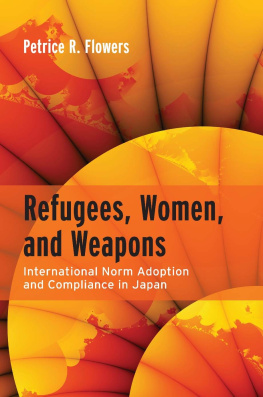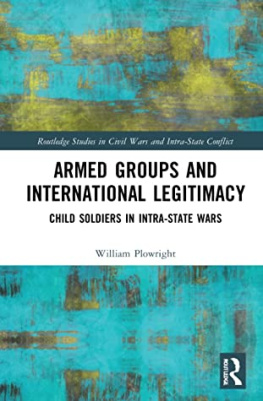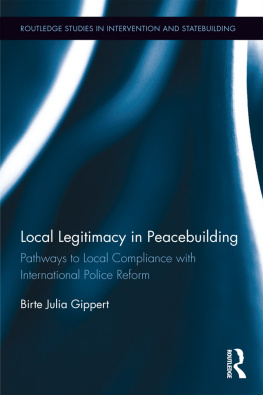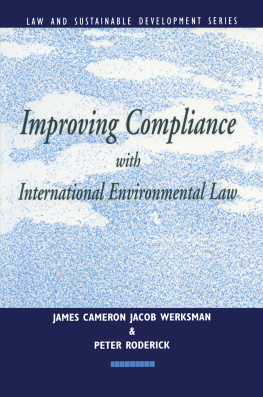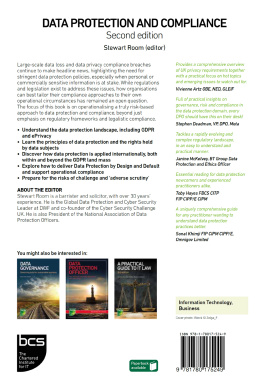Order within Anarchy
Order within Anarchy focuses on how the laws of war create strategic expectations about how states and their soldiers will act during war, which can help produce restraint. International law as a political institution helps to create such expectations by specifying how violence should be limited and clarifying which actors should comply with those limits. The success of the laws of war depends on three related factors: compliance between warring states, compliance between soldiers on the battlefield, and control of soldiers by their militaries. A statistical study of compliance of the laws of war during the twentieth century shows that joint ratification strengthens both compliance and reciprocity, that compliance varies across issues with the scope for individual violations, and that violations occur early in war. Close study of the treatment of prisoners of war during World Wars I and II demonstrates the difficulties posed by states varied willingness to limit violence, a lack of clarity about what restraint means, and the practical problems of restraint on the battlefield.
JAMES D. MORROW is A. F. K. Organski Collegiate Professor of World Politics and Research Professor at the Center for Political Studies, University of Michigan. He previously taught at the Graduate Institute of International Studies, Stanford University, the University of Rochester, and Michigan State University. He is the author of Game Theory for Political Scientists , co-author of The Logic of Political Survival , and author of more than sixty articles in refereed journals and other publications. He was president of the Peace Science Society (International) in 20082009. Morrow received the Karl Deutsch Award from the International Studies Association in 1994 and has been a National Fellow at the Hoover Institution and an Advanced Research Fellow in Foreign Policy Studies for the Social Science Research Council.
Order within Anarchy
The Laws of War as an International Institution
James D. Morrow
University of Michigan
32 Avenue of the Americas, New York, NY 10013-2473, USA
Cambridge University Press is part of the University of Cambridge.
It furthers the Universitys mission by disseminating knowledge in the pursuit of education, learning, and research at the highest international levels of excellence.
www.cambridge.org
Information on this title: www.cambridge.org/9781107626775
James D. Morrow 2014
This publication is in copyright. Subject to statutory exception and to the provisions of relevant collective licensing agreements, no reproduction of any part may take place without the written permission of Cambridge University Press.
First published 2014
Printed in the United States of America
A catalog record for this publication is available from the British Library.
Library of Congress Cataloging in Publication data
Morrow, James D., 1957 author.
Order within anarchy : the laws of war as an international institution / James D. Morrow, University of Michigan.
pages cm
Includes bibliographical references and index.
ISBN 978-1-107-04896-6 (hardback) ISBN 978-1-107-62677-5 (paperback)
1. War (International law) I. Title.
KZ6385.M67 2014
341.6dc23 2013048952
ISBN 978-1-107-04896-6 Hardback
ISBN 978-1-107-62677-5 Paperback
Cambridge University Press has no responsibility for the persistence or accuracy of URLs for external or third-party Internet Web sites referred to in this publication and does not guarantee that any content on such Web sites is, or will remain, accurate or appropriate.
Contents
Tables
Figures
Acknowledgments
Like whales, elephants, and asses, this book has had a long gestation period. I began thinking about the laws of war in the summer of 1995, triggered by the fortieth anniversary of the atomic bombings of Japan. Since that time, I have read and worked on and off on the project that led to this book. I hope the reader will find that the long gestation has made this book a whale of a book, rather than elephantine or asinine.
I have been generously supported by four great institutions while I worked on this project. I began work on it at the Hoover Institution where I was a Senior Research Fellow. John Raisian, the Director of the Hoover Institution, provided me with both a supportive environment and resources to begin this project. He also gave me the opportunity to return during summer fellowships after I left Hoover to become a professor at the University of Michigan; I used these months of splendid isolation at Hoover to write several draft chapters of this book. After arriving at Michigan, the Center for Political Studies has been my research home. The support of the Center staff was invaluable in securing funding to support the data collection used in . The National Science Foundation supported data collection and analysis and the formal model under grant SES-0111787. The Graduate Institute of International Studies in Geneva provided me with a home during my sabbatical leave when I completed the first full draft of most chapters. None of these institutions bears any responsibility for the arguments I make here.
This project has been helped greatly by the many talks I have given from it over its long period of gestation. I would like to thank conference and seminar participants at the University of Arizona, Boalt Law School at the University of California at Berkeley, the University of California at Davis, the University of California at Los Angeles, the University of California at San Diego, the University of Chicago Law School, the PIPES seminar at the University of Chicago, Emory University, George Washington University, the Graduate Institute of International Studies, the Harvard Law School, the Hoover Institution, the University of Konstanz, the University of Michigan, University of Michigan Law School, New York University, New York University Law School, Northwestern University, the University of Pennsylvania, Princeton University, Rice University, the University of Sao Paolo, the Center for International Security and Cooperation and the Department of Political Science at Stanford University, the University of Virginia, and the Center for Comparative and International Studies in Zurich for their many incisive and helpful comments. All errors that remain are mine alone.
Many colleagues have also been generous with their comments as I worked on this project. Hyeran Jo provided valuable comments on the draft manuscript. Beth Simmons at Harvard and Allan Dafoe at Yale both taught the manuscript in their graduate seminars during the winter of 2013, and I thank them and their students for their comments and reactions. The students in my graduate seminar on war in the same semester also read and commented on the manuscript. Anna Gryzmala-Busse organized a book workshop including Jenna Bednar, Skip Lupia, and George Tsebelis; their comments and advice immensely improved the book. Jenna was also kind enough to provide detailed comments on the manuscript. Hyeran Jo also gave me useful comments on the project at the final rewriting.
Data collection is not a solitary job. A number of research assistants at the University of Michigan aided the process. Through the Undergraduate Research Opportunity Program at Michigan, Alex Geralds, Fenlene Hsu, Jim Huyhn, Heath Ranger, and Mike Wakeley all contributed to the collection of information used in the coding. Graduate students Sarah Croco, Tom Flores, Jiyun Kim, Shanna Kirschner, Rich Maher, and Dominick Wright helped complete the collection and develop the coding rules from the treaties. Hyeran Jo and I did the coding together from the collected information, and I thank her for keeping me honest with her attention to detail and consistency in that thankless task.



